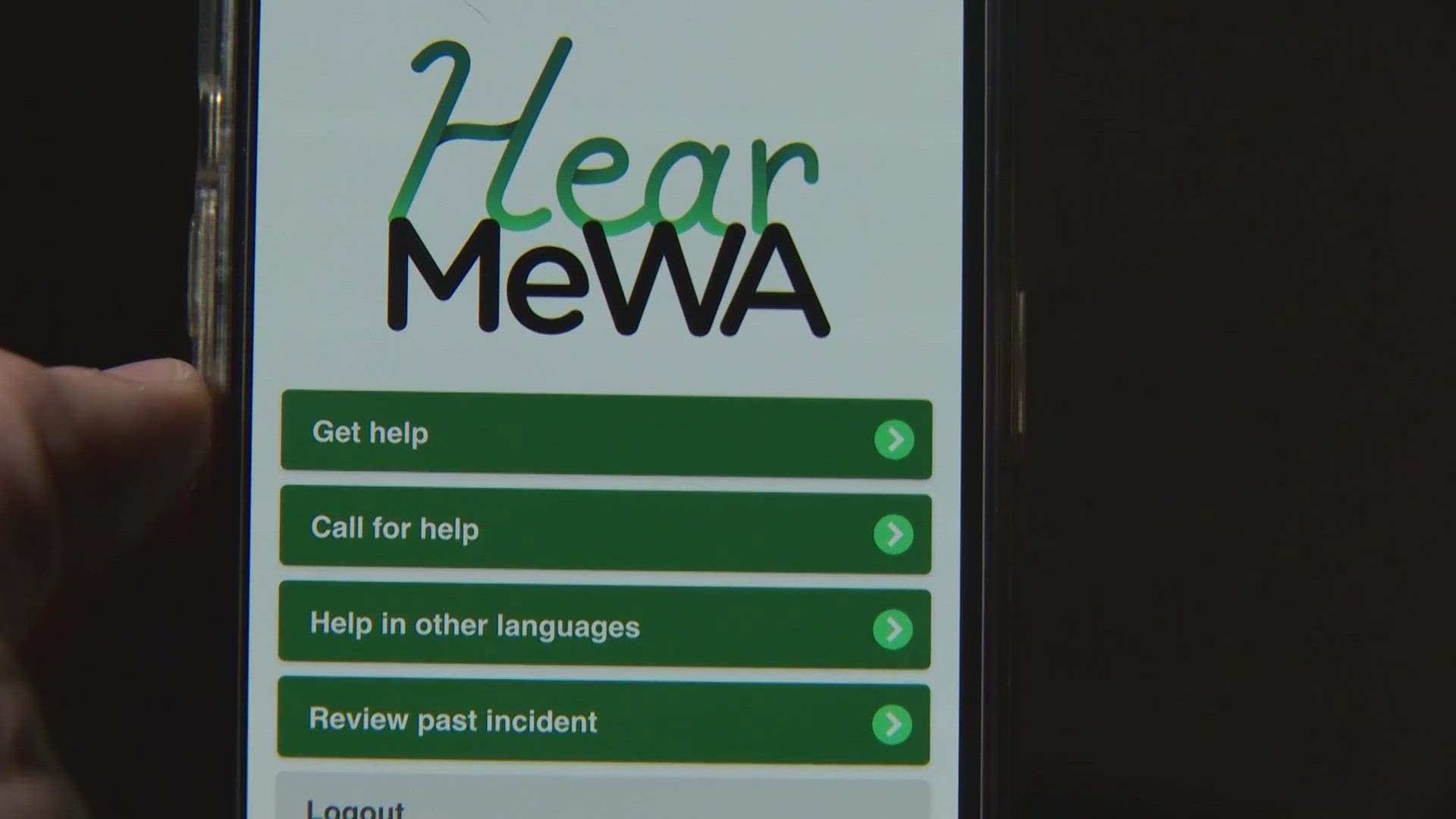SEATTLE — Attorney General Bob Ferguson announced the launch of HearMeWA Tuesday, a new first-of-its-kind statewide reporting system addressing the safety and well-being of young people.
In a release, Ferguson said HearMeWA will help young Washingtonians with bullying, mental health struggles, social pressures, suicidal thoughts, domestic violence, housing or food insecurity, gender identity, thoughts of violence, or things that make life difficult.
The new reporting system offers young people a direct line to a national crisis center 24 hours a day, 365 days a year. Ferguson said reports can be made by phone, text, online, or in HearMeWA mobile apps available in the Apple or Google stores. Once a report is filed, highly trained crisis counselors triage and connect the person with service providers who can help.
Ferguson's office said HearMeWA is the first-ever program to offer these services statewide instead of relying solely on schools or 911 to respond. The new reporting system will be an alternative for kids living in rural communities, which often only have emergency services for crises.
“Young Washingtonians are facing a mental health crisis unlike anything we have seen before,” Ferguson said. “HearMeWA removes roadblocks that previously kept young people from seeking help for their most urgent challenges. This will improve — and save — lives.”
The idea behind HearMeWA started after planning at a kitchen table in the Tri-Cities, the release said. After several youth suicides in Kennewick, Washington, college student Conner Mertens wanted to make a change.
"I wish I could have had this," said Conner Mertens, who works as Ballard High School’s assistant soccer coach.
He said the idea was born out of tragedy after his hometown classmate passed away.
"One of the kids took their own life at my old stadium that I used to play at," Mertens said. "I could see myself in this kid."
That is why Mertens reached out to former Washington State Sen. Sharon Brown, who got back to him with interest.
"And we set up a coffee date," he said.
Thankfully, she liked his vision and ultimately helped turn it into a reality.
"There are so many things in young people's lives that are going on these days," said Mertens.
But the app is not just for reporting mental health issues. It is also for reporting physical safety concerns like active threats, gun possession, or even child abuse. Responding counselors will involve the police if the situation warrants; for example, "If it's, again, 'I saw a kid at school today with a gun in his locker,' they're going to make sure that that's dealt with appropriately."
But the counselors also partner with local schools like Garfield High School, which just experienced a tragedy. The idea is that school leaders can get ahead of any safety threats.
"The folks that are on the other end, they all are trained like 200 hours," said Mertens. "It truly is first of its kind, and, I think, hope and pray that it's gonna save lives... it's just trying to make life a little easier for the youth in the state.”
Their research led to years of community collaboration until 2021, when the Washington legislature approved funds to build the statewide reporting system.
According to Ferguson's office, the rate of young people dealing with depression doubled from 2009 to 2019. It has reached nearly 16%. Adolescent eating disorders have more than doubled from 2018 to 2022.
“For me, HearMeWA is essential for Washington’s youth because it lets them know that they are supported and people are there for them if they need help,” said Makena Crosser of Bainbridge Island, who serves as a member of the HearMeWA Youth Advisory Group. “When I was young there have been times when I’ve struggled with stress and anxiety and I know other young Washingtonians are also struggling with mental health or are experiencing violence. I believe HearMeWA will be able to help youth who need someone to turn to during their time of need.”
How to file a report to HearMeWA
Washingtonians can call the toll-free statewide number at 888-537-1637 or make a report online by clicking the "send a tip" button. Youth can also text HearMeWA to 738477 or file a report on the HearMeWA app available on their mobile device.
People up to 25 years old and any concerned adults can file a report with HearMeWA. You can file a report anonymously because identifying information like name, age and address are optional.
Officials said HearMeWA allows anyone filing or responding to a report to track it and provide updates unlike other crisis hotlines. Every individual who files a report is given a tip ID and password to review the report later, either online, on the app, or by phone.
What happens after filing report
All reports made within HearMeWA will be "immediately" received by a highly trained crisis counselor with the Sandy Hook Promise National Crisis Center.
At that point, the counselor contacts the individual, talks through the incident and triages the situation based on the level of urgency. The most urgent reports involve ones that threaten someone's life or safety.
The Sandy Hook Promise National Crisis Center already serves 3.5 million youth across the country. It operates 24 hours a day, seven days a week, 365 days a year.
“Every minute of every day, the crisis counselors in the National Crisis Center are here to connect young people to live-saving and life-changing resources whenever they’re in need, no matter what issues they’re facing,” said Crystal Garrant, chief program officer at Sandy Hook Promise. “All young Washingtonians have the right to physical and emotional safety. HearMeWA will provide a lifeline, ensuring that young people have a trusted adult to turn for help 24/7/365.”
Responders include schools, regional crisis lines, the national suicide prevention line (988), local law enforcement and emergency responders, child protective services and other community-based resources.

